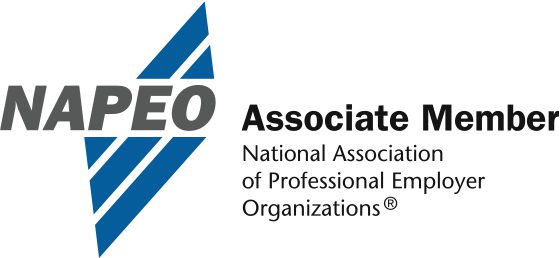Guest blog provided by Mineral, authored by Lisa DeShantz-Cook
- Great bosses don’t happen by accident. They need the right kind of training and insights to develop.
- Bad management practices are contagious, but good ones can be also.
- Managing managers is its own kind of leadership, but we’ve got tips to help.
Think about your favorite manager. Now think about what made them your favorite. Try to think about, for you, what make up the qualities of great managers. Was it the success you earned while working with them? Your employer may have evaluated them based on metrics like team productivity or turnover rates. Great managers are usually good at leading productive, low-turnover teams, but those aren’t the things their employees remember.
So what about them left such an indelible mark on you? Perhaps this manager was easily approachable and worthy of your trust. Maybe they effectively led your team through a major change and had your back the whole way. Perhaps they were always laser-focused on developing their team—on developing you.
In our view, the success of a manager is defined by the success of the people they lead. We rate a manager’s performance based largely on how their team is doing. That’s what helps define the qualities of great managers.
Bad Management Practices Are Rampant, But That Can Change
Unfortunately, the terrible manager remains a popular character in our collective consciousness—and for good reason. There’s no shortage of managers unwisely promoted into the role or given insufficient training to manage people well.

You’ve got the micromanager, the bully, the leader who plays favorites, and the boss who emails subordinates in the middle of the night only to not be available for clarification or responses during the workday. You’ve likely met or heard about the manager who frequently blows off meetings, neglects to give needed details on a project, or takes credit for the work of others. Horror stories abound in review sites, online communities, and conversations across the land.
With bad management practices so rampant, it’s easy for people to forget that there are lots of managers who do their job well. Many do it exceptionally well. That’s why we want to look at the characteristics of the best managers and what businesses can do to hire, promote, and develop these leaders.
Qualities of Great Managers
The best managers work hard to improve the work lives of their team members. A big part of that is setting and communicating clear expectations. Good managers focus on performance, so their people get better at what they do. This includes empowering employees to identify development areas that matter the most to them. Another big part is facilitating cooperation so that their reports work better together and better with other teams. The best managers also recognize and advocate for their people. They listen carefully to know what their people need to be successful, and they aim to deliver it.
These managers are empathetic, understanding, and supportive. They listen to their people and have a keen understanding of what motivates and inspires them. They’re available to troubleshoot problems, brainstorm ideas, and provide guidance on projects. They communicate effectively and correct mistakes in ways that build people up rather than tear them down. These managers teach what they know and always seek to learn. They have an eye for equity.
Developing the Qualities of Great Managers
If your managers—or the people you intend to promote into management—don’t have all of these qualities, don’t worry. These traits and behaviors can be taught and nurtured. Managers also need to be managed. Here are some ways you can build more effective managers and nurture the traits that make managers great.
1. Train New Managers After You’ve Promoted Them
When you promote a stellar employee into a managerial role, you also must give them the tools to successfully manage people. They may feel ready to lead a team, but it’s up to the employer to be certain they know the responsibilities involved, and how your organization wants them to execute those responsibilities. Also consider managers that are building a new team. Do they have the resources to successfully interview candidates? Perform tasks in your applicant tracking software? Communicate with HR or recruiting about the process? Your newer or less experienced leaders may have ideas about the way they want to manage based on their experience as employees—but that’s not enough.
To build truly successful managers, leadership may need to go back to the basics and provide not only base-level training, but clear avenues for answers, guidance, and support. Should new managers go to their own managers first or to HR with questions or problems? These are things that should be spelled out and communicated, even if you think they might be obvious or rudimentary.
It also doesn’t hurt to prepare new managers for the role before you hire or promote them into it. Talk with them about what the job will be like, especially if they haven’t managed before. Go over what’s needed and what’s nice to have. Be open about the struggles and the stress the new manager can expect to experience. Make sure they have the desire to manage.
2. Practice Presence
Most managers don’t want to or have the time to micromanage. They hope their reports have the skills and knowledge to do the job they were hired to do, so they take a hands-off approach and let their reports get to it. Or they’re too busy with their own projects to do anything more than basic managerial duties. But that’s a sure way to see projects or tasks go off-track, especially if managers don’t make themselves available for troubleshooting, or provide clarity on instructions.
Remind your managers to treat silence from their reports as an opportunity to check in, offer an ear, problem solve, or simply cheerlead. Check-ins don’t have to be formal, overwhelming, or take more time than necessary. Software programs that allow employees to note what they’re working on or bring up obstacles and share these with their manager can be a great tool and don’t have to take anyone more than a few minutes at a time. Less formal but still as productive, a scheduled check-in call (at an agreed-upon frequency) gives managers insight into projects and helps employees feel heard and celebrated.
3. Guide the Guiders
Good managers don’t necessarily have all the answers—but they know where to get them. Company leadership should aim to provide managers at all levels with the resources and training they need to do their best for their reports. Do your people leaders have access to mentors either inside the company or with partners or resource groups, and do you encourage these relationships? Mentorship programs, “day-in-the-life-of” presentations, or even informal programs that connect managers from different departments can provide managers with inspiration and support.
Newer managers might not know immediately how to handle a situation where an employee has a health crisis or family issue that suddenly takes them away from work. Do your managers know where to turn? Is there an online repository for information and guidance for situations managers may be presented with (and do all managers know about it)? Or would you rather they immediately bring the issue to HR?
Programs can be robust, such as mandatory manager trainings scheduled throughout the year, or as simple as setting up an internal messaging process (e.g., Slack, Skype, text messaging) or smaller interdepartmental groups of managers that can provide informal support to one another. Whether your company has the budget for a formal training program or not, connections can and should be made to support managers.
If you’re not sure where your managers could use guidance or development, ask them. They’re more likely to be engaged in their development if they have a say in what they’re learning. Lifelong learning is another of the qualities of great managers.
4. Promote Teamwork Among Managers
Are your managers operating as a team? Each of your managers has a distinct personality and approach to management that affects their leadership style. One may be highly self-driven while another needs deadlines to motivate action. Another may focus on building their team’s strengths, another on correcting their team’s weaknesses. One may communicate a lot, another only a little.
These differences can work, but they can also cause confusion and inequality, whether real or imagined. For instance, employees who report to or work with more than one manager may not know what is expected of them. Or they may find themselves overworked if managers don’t coordinate workloads. Cross-team efforts may be delayed or even ruined due to misunderstandings or failures to communicate. The company may be guided by several conflicting personalities instead of a single, unified company culture. In extreme cases, inconsistent management practices may lead to discrimination claims.
To bring managers together, you need something to unite them around. This is your company culture—the personality of the organization, its mission and values, working environment, policies, and practices. Ensure your managers are following consistent management practices, making decisions aligned with the values of the company, and regularly communicating with one another about their needs, obstacles, and workforce changes.

Neither good managers nor bad managers exist in a vacuum. They either have the support or the inattention of company leadership—the latter to dangerous consequences. A culture of poor management can lead to employee dissatisfaction, burnout, and increased turnover, all of which can be costly. An investment in selecting with intention and building the qualities of great managers is not just an investment in them, but an investment in the company.
Author: Lisa DeShantz-Cook
Lisa DeShantz-Cook, PHR, is a career copy editor and writer and has been editing HR and employment law copy for almost 20 years. She occasionally writes on HR topics, has been published in Quartz, and was recently interviewed for an article published in Business Insider.







